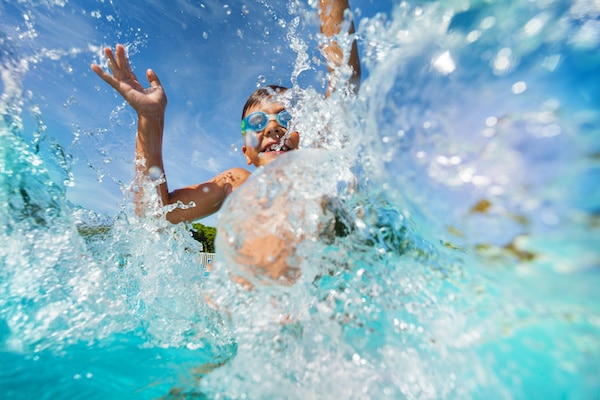
Keeping Children with Autism Safe Around Water: Essential Tips and Strategies
The sound of a child’s laughter as they splash around in a pool or at the beach is a joy that many parents cherish. Water play can be an incredibly stimulating and enjoyable experience for kids, but it does require a keen eye on safety, particularly for children on the autism spectrum.
Children with autism may have difficulty with sensory processing, understanding danger, or following instructions, which can sometimes increase the risks associated with water environments. In this blog post, we will focus on the importance of water safety for children with autism and provide you with practical, actionable tips to keep your child safe.

Understanding the Risks
Research shows that drowning remains a leading cause of death among children with autism, especially for those under the age of 14. Factors contributing to this include a tendency for wandering, an attraction to water, and challenges with understanding danger or following safety instructions.
Importance of Supervision
Regardless of a child’s swimming ability, adult supervision is crucial when children with autism are around water. It is important to stay within arm’s reach, maintaining constant visual contact. Remember, supervision means focusing all your attention on your child without being distracted by other activities.
Swimming Lessons
Swimming lessons can be an effective way to help children with autism stay safe around water. Look for swim instructors experienced in working with children with special needs. They can tailor lessons to your child’s abilities and learning style, and teach essential skills like floating, treading water, and safely exiting the water.
Water Safety Education
Integrate water safety education into your child’s daily routine. Use visual aids, social stories, and role-playing scenarios to help them understand the potential dangers associated with water. Remind them to never go near water without an adult and to always wear a life jacket when boating or engaging in other water sports.
Safety Measures at Home
If you have a pool at home, it should be fenced off with a self-closing, self-latching gate that your child cannot open. Consider pool alarms or pool covers as additional layers of protection. Remove any toys from the pool area when not in use, as they can be a tempting lure for a child with autism.
Identification
Given the risk of wandering in children with autism, ensure your child has some form of identification on them at all times. This could be a wristband, an ID card, or a GPS tracking device. This will help others to identify your child and understand their needs in case they wander off.
Community Support
Let your neighbors and local first responders know that your child has autism and may be attracted to water. Sharing this information can ensure a quick and effective response if your child ever goes missing.
Practice Emergency Drills
Perform regular emergency drills with your child so they understand what to do if they find themselves in a water emergency. This can include teaching them how to call for help and use flotation devices.
Water safety for children with autism takes vigilance, preparation, and education, but the peace of mind it brings is invaluable. By taking these steps, you can enjoy the benefits of water play and cool summer fun while ensuring your child’s safety.
Remember, every child with autism is unique, and their response to water may vary. Stay attuned to their needs, fears, and attractions regarding water. Continue to adapt your strategies as needed and never underestimate the power of preventive measures when it comes to keeping your child safe around water.
Harsha Autism Centers provide ongoing care for children, adolescents, and young adults (ages 2-22) with autism to improve the quality of their lives. If you would like learn more about how Harsha Autism Centers can help please contact us at info@harshaautism.com or call (812) 233-8833.



